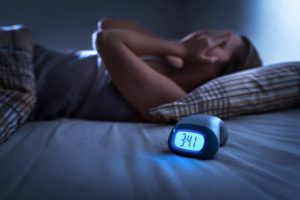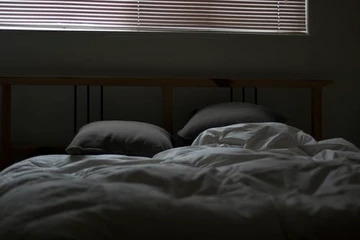What causes a Sleep Disorder
If you have the following symptoms, you have a sleep disorder-
- You regularly experience a hard time getting sleep.
- Even after at least seven hours of sleep at night, you feel tired during the daytime.
- You cannot perform your regular daytime activities.
- Irritability and anxiety.
- Weight gain.
- Unusual breathing patterns.
A Brief Guide on Sleep Disorders
class=”_3f-vr _208Ie blog-post-title-font _1Hxbl _3SkfC _2QAo- _25MYV _2WrB- _1atvN public-DraftStyleDefault-block-depth0 public-DraftStyleDefault-text-ltr”>
What are the Types of Sleep Disorders?
The five types of sleep disorders are –
- Insomnia;
- Sleep apnea;
- Restless legs syndrome ;
- REM sleep behavior disorder; and
- Narcolepsy
What are the Causes of Sleep Disorders?
Allergy and Respiratory Problems
Allergies, colds, and upper respiratory infections can make breathing difficult at night while lying on the bed. The challenge to breathe through your nose can also create difficulty in sleeping. It can also cause sleep disorders in children.
Nocturia
Nocturia, or frequent urination, may cause you to wake up from sleep during the night. Urinary tract diseases or hormonal imbalances may develop this condition.
Consult with your right away if you experience bleeding and pain along with frequent urination.
Chronic Pain
Constant pain can make it challenging for you to fall asleep. It might even disrupt your sleep and wake you up even after you fall asleep. Some of the most common reasons that cause chronic pain are:
- Arthritis
- Fatigue syndrome
- Fibromyalgia
- Inflammatory bowel disease
- Chronic headaches
- Chronic lower back pain
In some cases, chronic pain may even turn intense due to sleep disorders. For instance, doctors believe fibromyalgia development might be linked to sleeping disorders.
Stress and Anxiety
Sleep quality often gets affected by stress and anxiety. It makes it difficult for you to fall asleep or to stay asleep for enough hours. Your sleep may also get disrupted by nightmares, sleep talking, or sleepwalking. This is sleep disorders psychology.
Narcolepsy
It is a neurological disorder that negatively impacts your ability to wake and sleep. People who suffer from narcolepsy experience excessive and uncontrollable daytime sleepiness. They may also fall asleep all of a sudden at any time and while performing any type of activity.

Night Shift Work
People who work night shifts often experience sleep disorders. Their working schedule does not allow them to sleep when they start to feel drowsy at night. Their routine goes contrary, and hence, messes up with their biological clocks.
Medication
Drugs can disrupt your sleep. It can be antidepressant medication, blood pressure pills, and over-the-counter cold medicine.
Aging
Most adults over the age of 65 start experiencing some sort of sleep disorder. It is still unclear whether it is a result of aging or the medications that older people commonly use.
Pregnancy
The quality of sleep of a pregnant woman gets affected due to the hormonal changes and physical discomforts associated with pregnancy.
Menopause
Approx 75%-85% of menopausal women struggle with sleep disorders. They experience hot flashes and sweating for almost five years in their menopause stage. This makes it difficult for them to sleep peacefully at night.
Other than these, there can be rare sleep disorders too. Therefore, it is essential to take a sleeping disorder test before taking any insomnia treatment.
Contact us at Jeff Steinberg, MD Today
We hope you find the blog informative. Schedule your appointment with your Neurologist Fort Lauderdale if you have trouble sleeping.

